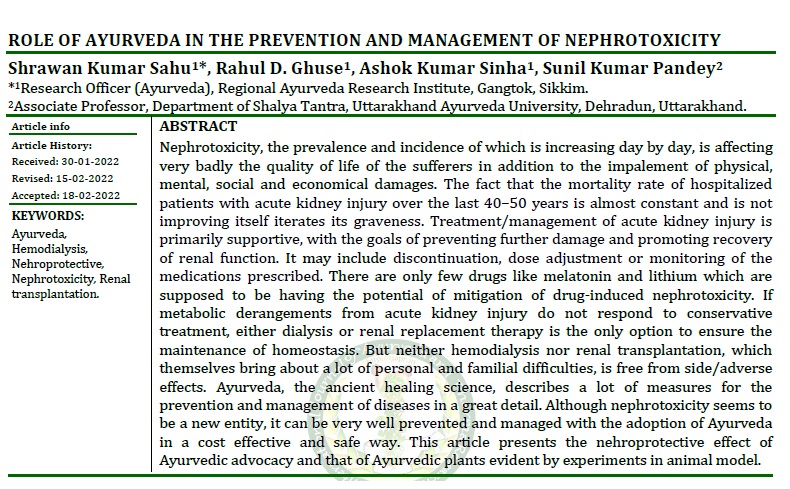Role of Ayurveda in the Prevention and Management of Nephrotoxicity
DOI:
https://doi.org/10.47070/ijapr.v10i2.2227Keywords:
Ayurveda, Hemodialysis, Nehroprotective, Nephrotoxicity, Renal transplantationAbstract
Nephrotoxicity, the prevalence and incidence of which is increasing day by day, is affecting very badly the quality of life of the sufferers in addition to the impalement of physical, mental, social and economical damages. The fact that the mortality rate of hospitalized patients with acute kidney injury over the last 40–50 years is almost constant and is not improving itself iterates its graveness. Treatment/management of acute kidney injury is primarily supportive, with the goals of preventing further damage and promoting recovery of renal function. It may include discontinuation, dose adjustment or monitoring of the medications prescribed. There are only few drugs like melatonin and lithium which are supposed to be having the potential of mitigation of drug-induced nephrotoxicity. If metabolic derangements from acute kidney injury do not respond to conservative treatment, either dialysis or renal replacement therapy is the only option to ensure the maintenance of homeostasis. But neither hemodialysis nor renal transplantation, which themselves bring about a lot of personal and familial difficulties, is free from side/adverse effects. Ayurveda, the ancient healing science, describes a lot of measures for the prevention and management of diseases in a great detail. Although nephrotoxicity seems to be a new entity, it can be very well prevented and managed with the adoption of Ayurveda in a cost effective and safe way. This article presents the nehroprotective effect of Ayurvedic advocacy and that of Ayurvedic plants evident by experiments in animal model.
Downloads




